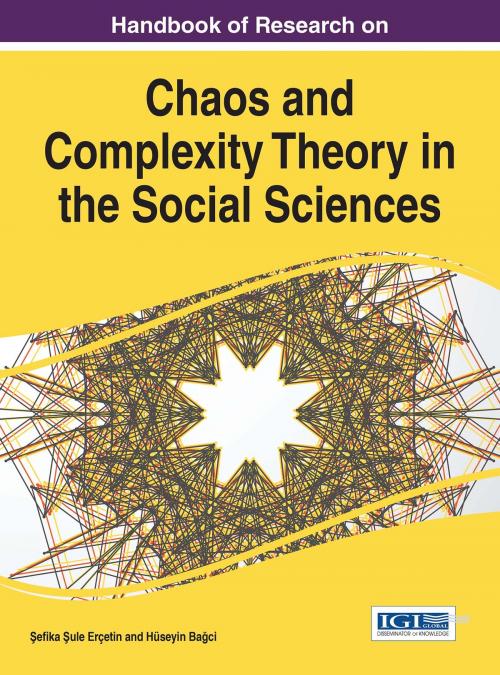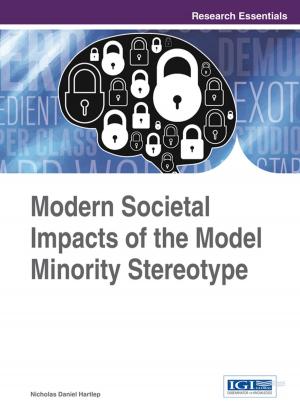Handbook of Research on Chaos and Complexity Theory in the Social Sciences
Nonfiction, Science & Nature, Mathematics, Social & Cultural Studies, Social Science| Author: | ISBN: | 9781522501503 | |
| Publisher: | IGI Global | Publication: | April 21, 2016 |
| Imprint: | Information Science Reference | Language: | English |
| Author: | |
| ISBN: | 9781522501503 |
| Publisher: | IGI Global |
| Publication: | April 21, 2016 |
| Imprint: | Information Science Reference |
| Language: | English |
The concept of “chaos”, and chaos theory, though it is a field of study specifically in the field of mathematics with applications in physics, engineering, economics, management, and education, has also recently taken root in the social sciences. As a method of analyzing the way in which the digital age has connected society more than ever, chaos and complexity theory serves as a tactic to tie world events and cope with the information overload that is associated with heightened social connectivity. The Handbook of Research on Chaos and Complexity Theory in the Social Sciences explores the theories of chaos and complexity as applied to a variety of disciplines including political science, organizational and management science, economics, and education. Presenting diverse research-based perspectives on mathematical patterns in the world system, this publication is an essential reference source for scholars, researchers, mathematicians, social theorists, and graduate-level students in a variety of disciplines.
The concept of “chaos”, and chaos theory, though it is a field of study specifically in the field of mathematics with applications in physics, engineering, economics, management, and education, has also recently taken root in the social sciences. As a method of analyzing the way in which the digital age has connected society more than ever, chaos and complexity theory serves as a tactic to tie world events and cope with the information overload that is associated with heightened social connectivity. The Handbook of Research on Chaos and Complexity Theory in the Social Sciences explores the theories of chaos and complexity as applied to a variety of disciplines including political science, organizational and management science, economics, and education. Presenting diverse research-based perspectives on mathematical patterns in the world system, this publication is an essential reference source for scholars, researchers, mathematicians, social theorists, and graduate-level students in a variety of disciplines.















